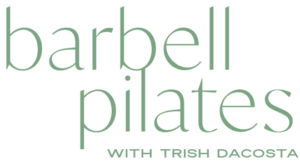If you had to choose between watching paint dry or budgeting your money in a duller-than-dull spreadsheet, which evil would you choose?
Many of us would likely choose the former: Matte or Gloss paint, please?
Looking at your personal finances square in the face is a lot like stepping on the scale and coming to terms with an unwanted reality.
The easy thing to do in both scenarios is to ignore it. Hide the bills. Throw out the bank statements. Avoid the mirrors and all forms of denim. But what happens in ignoring the cold-hard facts of where you stand physically and financially is that nothing ever improves and regresses year after year. Eventually, you will need to face the music (or in this case, your money and your health) because you’ll have no other choice.
Money and Health Are Interlinked
The truth is that money and health are closely connected. Your financial choices influence your health choices – which healthcare provider you choose, where you get your groceries from, and what preventative health care methods are best for you.
Similarly, the state of your health dictates how and where you invest your money. If you’re a 40-year-old in questionable health, you’re more likely to spend on medicine, doctor’s visits, and medical treatments. That’s money that could be invested or spent on experiences that matter to you.
Managing your money is not a necessary evil, but taking charge of it will spare you major headaches later. Likewise, daily exercise and good nutrition is simply part of the formula for living a long and healthy life. The more you ignore either, the worse it gets.
Let’s look at these simple truths about money and your health:
Money can’t buy happiness, but it does buy you choices.
Put your energy into increasing your earning capacity instead of cutting out lattes and avocado toasts. More money means you can hire a trainer, buy organic, select a better medical provider, benefit from preventative treatments like sports massages and acupuncture, and make better informed decisions about your health instead of succumbing to prescription.
You can exercise purely for its mental health benefits or pleasure.
Fat loss isn’t the only reason to exercise. If you’re one of those people constantly trying to lose weight but loathes any type of exercise, perhaps it’s time to reframe how you view fitness. It’s perfectly normal to workout simply because you like how it makes you feel.
Retirement isn’t the only worthwhile money goal worth pursuing.
Like the point above, there are many reasons to pay off debt, save, and invest besides retirement. When I was 25, I realized how important it was to have money set aside in case I was in a soul-sucking job and wished to leave. At 28, I started setting money aside for travel so those random weekend trips or expensive flights back to the East Coast didn’t knock me off my feet around the holidays. Exercise is very similar. You may not see why you need to develop power in your gym sessions, but there might come a time when you’ll need that explosive power to save yourself.
Paying off debt before you invest is like waiting to get fit before going to the gym.
Do both. When it comes to investing, time and compound interest are your best friends. Some people have massive student loans that could take 20+ years to pay off. Are you willing to put off investing for 20 years? That’s a lot of money to leave on the table, friend!
Waiting around until you get fit before getting a gym membership and going to the gym is a fear-based tactic that serves no one. If you’re not quite ready to go to the gym, start at home, or go to the gym on non-peak hours where there aren’t as many people around. Don’t let fear stop you from starting.
Cardio is good for you. Carbs are delicious and good for you. Buy the latte. Splurge on the vacation.
 There is a lot of fear-mongering in the fitness and financial industry that keeps people stuck. The facts are simple: Aerobic exercise is great for your cardiovascular health. Carbohydrates are necessary to maintain your energy and can help you lose weight when you eat the proper amount for your activity level and goals. Buying a latte every day or splurging on the bamboo, designer bed sheets that make you feel like you’re sleeping at the Ritz Carlton is not going to lead to financial ruin. Extreme thinking is what prevents you from achieving success, and trust me – that one dish of pasta or daily Starbucks run isn’t going to destroy your financial or muscle gains.
There is a lot of fear-mongering in the fitness and financial industry that keeps people stuck. The facts are simple: Aerobic exercise is great for your cardiovascular health. Carbohydrates are necessary to maintain your energy and can help you lose weight when you eat the proper amount for your activity level and goals. Buying a latte every day or splurging on the bamboo, designer bed sheets that make you feel like you’re sleeping at the Ritz Carlton is not going to lead to financial ruin. Extreme thinking is what prevents you from achieving success, and trust me – that one dish of pasta or daily Starbucks run isn’t going to destroy your financial or muscle gains.
A 401k account is not an investment. Having a gym membership doesn’t change your health.
A 401K account is merely a brokerage account that holds the money for you. You still need to go in and select your investments in order for it to really grow.
A gym membership or meeting with your trainer one hour a week isn’t going to change much if you’re unwilling to show up to sessions and do work on your own. Effort is still required to realize any change at all.
Society tends to overcomplicate matters and as a result, you run away from the spreadsheet, away from the weight room, and nothing changes. Don’t make this mistake. Managing your money is not that different from managing your health and investing in learning more about both will take you further than ignoring it and watching paint dry.
Over to you. What piece of advice has helped you reframe your money or your fitness?


